
Review 2025 election information here.
2025-27 term slate of candidates
President
- Valerie Kibler | Harrisonburg High School | Harrisonburg, Virginia
Vice president
- Justin Daigle | Brighton High School | Brighton, Colorado
Educational initiatives director
- Rachel Steil | Stillwater Area High School | Stillwater, Minnesota
Director-at-large positions (2)
- Shari Chumley | Tupelo High School | Tupelo, Mississippi
- Timm Pilcher | Drake University | Des Moines, Iowa
- Deborah Porterfield | Bronx River High School | Bronx, New York
Candidate statements
Candidate for President
Valerie Kibler, MJE, Harrisonburg (Virginia) High School
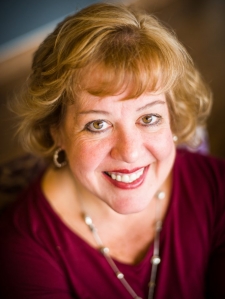
Why do you want to serve, and how will you help advance JEA’s mission?
I have served as the JEA president for the last two years and I want to continue because there’s much more work to get done. Someone took a chance on me when I was first beginning as a journalism teacher and I know it’s my duty to give back and finish what I start.
JEA has so much to offer our community of advisers. Our curriculum is our premiere product that comes with membership. It’s our responsibility to make sure it is continually evolving and representing common pedagogical practices in our profession. We have the best product on the market, but in order to stay at the top, we must continue to grow and showcase/market our strong curriculum.
Our conventions in partnership with NSPA are another of our top programs. We must continue to improve upon the convention experience so we attract more students/advisers, and we must develop new concepts that allow those who cannot attend conventions the same opportunities for educational growth.
Our membership needs to reflect more closely the number of programs we have across the country. We must reach teachers and foster their continued professional development as journalism educators. We know journalism advisers are often the only people in their buildings who do what they do. We need to welcome all these teachers into our community.
You don’t have to be a certain age or have a magic number of years in the classroom to start giving back. You just have to be willing. That’s what it will take to help JEA grow into an even greater organization: everyone having the courage to take the first step and start giving back by bringing someone else along.
What do you think is the greatest challenge facing scholastic journalism education today?
There are multiple challenges in our journalism classrooms today, but the one that’s having the most impact is teachers choosing to leave advising and/or the teaching profession altogether for a wide variety of reasons.
The pandemic was often used as an excuse to cram multiple courses/levels together into one classroom or to eliminate programs entirely. While censorship can also be listed among the greatest challenges, eliminating programs using the pandemic or other reasons as an excuse winds up being one of the greatest forms of hidden censorship we face.
We need to focus our efforts on recruiting young people into the profession we love and find so rewarding, but even more importantly, we need to convince young people of the importance of keeping scholastic journalism programs alive and flourishing in our democracy. When students thrive in our classrooms, we should be encouraging them to consider a career in journalism education.
We can work harder to solve this issue by partnering more closely with collegiate journalism programs and scholastic press associations to bridge the gap between scholastic journalism and the collegiate world. Likewise, we need to work together with the collegiate world and the professional world to show students the clear pathway(s) to a career in journalism education or professional journalism.
Why do you believe your voice is an important voice or perspective that needs to be heard?
I have spent much of my career volunteering and giving back to the community that helped me find my niche in the journalism classroom. But it’s my variety of experiences which make my voice an important one.
I began teaching in a rural community with a very low socioeconomic status. I have a special place in my heart for kids like those I worked with who got to experience conventions/travel for the first time in their lives and worked their butts off to pay for those trips. I know there are thousands of kids around our country who will never be able to go to a national convention. It’s our responsibility to level the playing field and provide experiences for everyone that allow everyone the same opportunities to learn.
My current position allows me to work with one of the most diverse school populations. With students from over 60 countries who speak over 40 different languages, these kids have built a media staff that reflects our diversity. We need more of that in our schools.
Finally, I didn’t go to college knowing I wanted to teach journalism … I just wanted to teach. I chose English. Five years later, my principal chose me to advise the newspaper. I knew nothing about journalism or how to teach it. I started reading and taking my students to everything I could find. I realized I couldn’t do it by myself, so I found people to help us. We grew and improved, and we’re still growing. And that’s what I want everyone to know: It doesn’t matter where you come from, what you look like, how much money you have, or how smart you are, with hard work and determination, everyone can find a niche in the journalism classroom just like I did.
Candidate for Vice President
Justin Daigle, MJE, Brighton (Colorado) High School
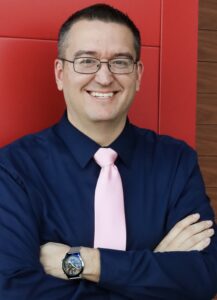
Why do you want to serve, and how will you help advance JEA’s mission?
My time as vice president so far has been a tremendous experience. I have been fortunate to collaborate with so many amazing journalism advisers who serve as committee members, state directors and board members. We have worked together to get state proclamations approved to recognize JEA and state journalism programs as we celebrated our Centennial birthday. We reestablished our Partner Project to work with advisers in New York and Texas (and soon Iowa and Virginia) to provide onsite training for student journalists. We have strengthened our relationship and partnership with the National Scholastic Press Association to continue to organize and create strong convention experiences for our membership. We have been intentional in selecting a diverse group of voices to present at JEA Advisers Institute, write articles for CJET and encourage to serve in leadership roles in the organization.
We have accomplished so much together (so much that can’t be all listed here), but there is still so much work left to do. And I want to be part of that work. As JEA vice president, I have been able to take on a bigger role in the journalism community — advocating for student journalists and programs, mentoring advisers and contributing to the overall discussion of scholastic journalism in any way I can. Anyone who knows me knows that I will do whatever I can to support others, and when I start something, I finish strong.
JEA and its mission means a lot to me and has been a driving force in shaping me as a journalism adviser. Let’s continue to work together to provide the best curriculum and resources to our JEA members.
What do you think is the greatest challenge facing scholastic journalism education today?
Ask any adviser and they will say, “Being a publications adviser is rough.” Since the pandemic, we have made great strides to rebuild and, for some, sustain our programs. Something that can’t be ignored is how advisers are leaving the professions of teaching and/or advising.
From state directors to our elected board, we all are trying to develop ways to provide resources and support to advisers. As a JEA Mentoring Committee member, my goal has been to work alongside state directors to encourage more advisers to become mentors to support and welcome our new advisers to our growing journalism family. Though we have more advisers mentoring, which is something to celebrate, we still do not have enough to support the growing number of new advisers.
As a JEA mentor, what my mentees have shared is they were grateful just to have someone who listened and helped them create an action plan to move forward. I know asking advisers to be part of one more thing (like being a mentor) can be daunting; however, we were once new advisers who needed resources and someone to just listen to. More importantly, I was grateful for the friendships I created with other advisers who became my besties. When I exit a virtual meeting with my mentee, I always leave the conversation feeling like that hour was so worth it because that adviser left smiling and was reminded that they can do this. I am reminded I can do this, too.
Why do you believe your voice is an important voice or perspective that needs to be heard?
Whenever I am representing JEA as vice president, I know that my voice not only represents me, but more importantly, the 2,554 members in our organization. Every voice matters. It is my duty and responsibility to make decisions and provide support to every voice in JEA.
What my voice brings is 21 years of educational experience and a hunger for growth and reflection to share with our membership. As a Career and Technical Education adviser, I can share my journey of transforming my yearbook program into a multimedia pathway where students can earn their Adobe certifications. As a champion for the First Amendment, I can share how I have built a supportive partnership with my administrative team at my school who understand the state law and support my students’ voice. As the current vice president of JEA, I can share our story as an organization as I have gained so much institutional knowledge that can support more advisers that we onboard as mentees, mentors or in leadership roles.
Being a journalism adviser has made my teaching career special. I have been inspired by so many students and advisers at BHS, in Colorado and across the nation. I want other adviser friends to feel that same love and inspiration in their roles. The work we do is so important, and isn’t getting any easier. We can and must find ways to support our fellow advisers to stay in this incredible profession.
Candidate for Educational Initiatives Director
Rachel Steil, MJE, Stillwater (Minnesota) Area High School
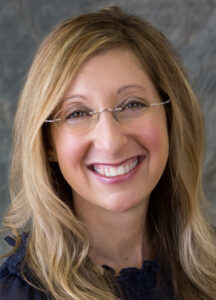
Why do you want to serve, and how will you help advance JEA’s mission?
My passion for journalism has been fueled by watching the impact student media has on my students — how it empowers them to engage critically, develop their voices and grow as ethical storytellers. Serving on the JEA board offers me the opportunity to share my strengths in areas of curriculum development, standards alignment and leadership.
When I started as a journalism adviser in 1999, I had 10 students and one computer. Since then, I have successfully built a strong program by attending local and national conventions, seeking critiques and accessing JEA curriculum. My students’ success is a direct result of professional organizations I have been part of for decades. After serving in the role of State Director for Minnesota, I realized I have more to offer, and I am ready contribute in a more significant way to the development of curriculum for advisers.
I will focus on strengthening the JEA curriculum to meet the evolving needs of journalists. One key priority will be to ensure the curriculum reflects the challenges of modern journalism, such as the rise of misinformation, the role of social media and the importance of media literacy. By integrating these topics into journalism education, we can better prepare students to navigate and report responsibly.
I will also work to align national standards, CTE and state-specific learning goals. This includes building interdisciplinary connections that position journalism as essential to both literacy and critical thinking development.
Another focus will be on providing tools to empower students to report on difficult and controversial topics. I will prioritize curriculum that includes ethical reporting, fact-checking, combating censorship, and building skills needed to cover stories that matter to students and their communities. I will work to support JEA’s curriculum initiatives, build partnerships and advocate for the importance of student media at all levels.
What do you think is the greatest challenge facing scholastic journalism education today?
While there are several challenges facing advisers and students across the country, including declining budgets and lack of time, I think the greatest challenge is the lack of administrative and community support. Advisers and students are having increasing difficulty covering controversial topics in this polarized media environment. As public trust in the media has declined, student journalists are more likely to encounter pushback when reporting on issues that matter most to their communities: transgender, politics, social justice, mental health and climate change. Reporting on these topics responsibly and courageously is necessary, but doing so often brings students into conflict with school administrators or community members who may attempt to censor student reporting. As a result, administration and school boards can discourage students from taking on meaningful, investigative work and limit their ability to engage with real-world issues.
Journalism advisers face the challenge of teaching students to balance responsible reporting with the pressures of risking their own careers. Many programs must fight for relevance and face increasing pressure to justify their place within the curriculum, especially if they are not classified as part of a school’s core subject. With additional pressures around censorship and termination, both advisers and students face real consequences for writing about controversial topics.
It is critical that we continue to support the expansion of New Voices in states across the country. Supporting journalism programs and advocating for student press freedoms is essential if we want to prepare the next generation of informed citizens and ethical journalists.
Why do you believe your voice is an important voice or perspective that needs to be heard?
My voice represents the perspective of a veteran adviser who has navigated the evolving landscape of scholastic journalism for nearly three decades. I understand the challenges educators face in balancing traditional journalism principles with the demands of digital technology, all while working within a system that often undervalues the importance of student media. I have been a pioneer in Minnesota in leveraging CTE certification and concurrent enrollment in my journalism programs. I have built and refined curricula that emphasize hands-on learning, critical thinking, and alignment with state and national standards. As a leader in my district with standards alignment, I have also been successful in getting district, state and NCAA approvals for dual credit (English and journalism) in the same course.
Further, my background as a Career Pathways Coordinator uniquely equips me to view journalism through the lens of partnerships and community collaboration. I cultivate partnerships with local media organizations and higher education institutions as a standard practice in my programs. I understand the networking and professional relationships to strengthen our programs, inform curriculum and to promote industry-standard professional skill development for all students.
I also understand firsthand the importance of advocacy — both for student press rights and for journalism education as a whole. Throughout my career, I have worked to protect students’ ability to report truthfully and to advocate for the inclusion of journalism programs for students. During my time as State Director, Minnesota was able to pass New Voices legislation.
I believe my experience prepares me to contribute meaningfully to the work of JEA. I am eager to amplify the voices of both educators and students on the board, ensuring that JEA remains a leader in journalism education and a defender of press freedoms.
Candidates for Director-at-large (2)
Shari Chumley, CJE, Tupelo (Mississippi) High School
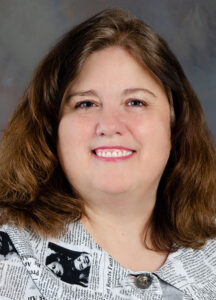
Why do you want to serve, and how will you help advance JEA’s mission?
I want to serve JEA because I would not be the teacher I am without the help and support of this amazing organization. I would like to give back and serve in the ongoing efforts to provide support for budding journalists and their teachers/advisers. JEA’s mission to educate teachers to help them educate students is near and dear to my heart — especially in providing resources and educational opportunities for new and struggling teachers. I started teaching as a second career later in life. In the second month of my first school year when I was so far in survival mode that breathing was a struggle, I was tasked with creating a yearbook. I had never done anything with journalism before so I figured it out as I went. The day after we submitted that book for printing, I was invited to our State Press Association convention. From the first session, I was hooked. I love yearbook journalism and have branched into multimedia journalism as well. I learned so much through trial and error, but even more from my state’s SPA and JEA. I’d like to give back to an organization that has done so much for me. And I’d like to be in a position to help other teachers who may feel out of their depths realize that they are not alone.
What do you think is the greatest challenge facing scholastic journalism education today?
I think the greatest challenge facing scholastic journalism education today is a lack of appreciation or understanding of what journalism can do for students and schools, especially by school administration and communities. I do not live in a state with legal protections for my journalists or even myself. My former principal once told me that the first paper he did not review would be the last one we published. I worked to educate him and future principals about the importance of free and responsible scholastic journalism. I have worked to educate my students as well as our school community about what that looks like by helping them create news stories and other forms of media that educate and entertain our audience. I am on the board of directors of our state SPA and hope to grow student journalism in the state. Only 10% of the schools in our state have a journalism program that is a member of the MSPA. I know that many of the nonmember schools have journalism programs, but are working autonomously. In my dealings with teachers from those schools (as well as member schools), I have found that many do not get recognition or support for their programs either. I would like to work at the national level as well as the state level to raise awareness of the importance of scholastic journalism for our schools, communities, states and country in order to empower teachers/advisers to empower the next generation of journalists.
Why do you believe your voice is an important voice or perspective that needs to be heard?
My voice is important because I teach and advise in Mississippi, a state that contains many of the most underserved and understaffed students in the country. It would be good for JEA to have a representative who can speak to and for teacher-advisers and students who do not have legal protections or as many opportunities in scholastic journalism. I do not have a background in journalism and have learned most of what I know from my state Scholastic Press Association and JEA. I’m passionate about teaching new advisers and know that our state and national resources are the most effective way to reach and teach advisers who can then pass that knowledge along to their students. I would love to be an advocate for those students and teacher-advisers.
Timm Pilcher, Drake University, Des Moines, Iowa
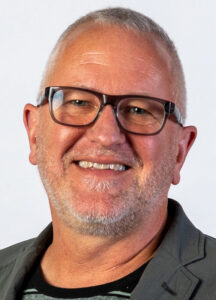
Why do you want to serve, and how will you help advance JEA’s mission?
As a lifetime JEA member who has been active for 30 years, I have gained much insight and a deep appreciation for the organization and its mission to support free and responsible scholastic journalism. As a scholastic publications adviser for 17 years, I was able to facilitate students’ understanding of the importance of a free and responsible press in maintaining the fundamental tenets of a democratic society, and as a former middle school administrator, I was able to continue the mission of advocating for student voice.
For an at-large member, it becomes increasingly important in this era of progressively skeptical audiences to promote and strengthen the journalism profession, starting with our most important constituents: students. For the past 30 years I have had the opportunity to present at the regional, state and national levels, advancing scholastic journalism and building a better understanding of its important functions. As a judge at the state and national levels, I have had the privilege of fostering rising programs to encourage and sustain their efforts. Being an adviser mentor and member of the certification committee, I collaborate closely with both advisers and administration to nurture individual programs and facilitate working relationships between advisers and administration, boosting an understanding of the importance of – and lending credence to – the profession and its practitioners, from middle school on.
Prior to the pandemic, I helped create (along with former JEA president Sarah Nichols and other secondary and higher education advisers) the first-ever Praxis exam for journalism advisers. While no test can ever completely cover the vast amounts of content knowledge advisers need (nor encompass the myriad decisions they will make) this, along with my work on the Certification Committee, continues to prepare advisers to advance their knowledge of the field and take pride in their profession.
What do you think is the greatest challenge facing scholastic journalism education today?
Unfortunately, there is no one “greatest” threat to scholastic journalism, but numerous perils that we face both as a profession and as individuals. The field writ large is fraught with danger, often physical. Reporters are harassed at public events and news organizations’ credibility disparaged on the national stage. Certain pundits, often with no journalistic credentials, ethics or integrity, lambast colleagues and fill the air with misperceptions, untruths and even outright lies.
At the scholastic level, the Student Press Law Center continues to deal with increasingly hostile state governments, university presidents and local school boards. While 17 states have some form of New Voices laws, this year alone, the SPLC saw a 34% increase in requests for assistance over the same period from last year (SPLC, 2024). As aspiring journalists, young students face pressure from their friends, classmates, teachers, parents and community, making their efforts to pursue the facts increasingly difficult.
Our profession’s lack of diversity overall is another huge concern. A recent Pew study (Mitchell & Gottfried, 2022) found that while there is ample diversity of age in the journalism field, there is a lack of diversity in sexual/gender orientation, race/ethnicity and even political ideology. It is paramount that journalists and journalism educators continue to recruit, train and retain young journalists as not only chroniclers of current events and curators of history, but as the fair and impartial lenses of a continuously more diverse and fragmented populace.
Mitchell, A., & Gottfried, J. (2022, June 14). 6. Journalists give industry mixed reviews on newsroom diversity, lowest marks in racial and ethnic diversity. Pew Research Center. https://www.pewresearch.org/journalism/2022/06/14/journalists-give-industry-mixed-reviews-on-newsroom-diversity-lowest-marks-in-racial-and-ethnic-diversity/
SPLC’s evolving and growing impact. Student Press Law Center. (2024, September 17). https://splc.org/impact/#report
Why do you believe your voice is an important voice or perspective that needs to be heard?
My background in scholastic publications and my current work as an academic adviser in a school of journalism have honed my ability to be an excellent communicator. An executive board member is held to a high standard as a brand ambassador for JEA. This equates to strong professionalism inside and outside the boardroom, and being able to field questions, comments and concerns from members and potential members.
I started working scholastic journalism over 45 years ago, when my high school adviser Rod Vahl taught me the importance of journalism. After high school, I worked as a United Auto Worker building bulldozers and tractor cabs. When I went to college to become a journalist, I worked 60-70 hours per week as a restaurant manager, lasting three years in school before dropping out. I had been out 10 years when Rod walked into the bicycle shop I was managing. He asked if I had ever finished my journalism degree, to which I replied that, no, he had taught me everything I needed to know. It was then that he uttered the life-changing words: “You ought to be a high school journalism teacher.” I later won the Rod Vahl Iowa High School Journalism Teacher of the Year award named in his honor.
Fast forward 30 years, and I am ready to facilitate yet another generation of advisers and students with activating their voices. In my current doctoral research, I am examining the experiences of entering first-year journalism students with work completion and deadline submission, an area essential to our craft. The goal for all of this is to continue to advance the Fourth Estate in comforting the afflicted, and afflicting the comfortable, as it seems we need that now more than ever.
Deborah Porterfield, Bronx (New York) River High School

Why do you want to serve, and how will you help advance JEA’s mission?
I want to help students and advisers from high-needs schools avail themselves of all that JEA offers.
First, some perspective: I launched an online student-run newspaper in December 2021 at Bronx River High School, a public school where more than 80% of the students face economic hardship. Just a year after the launch of the newspaper, JEA awarded us a first-time grant to attend its convention in St. Louis. My students felt out of place and struggled to “fit in.’’ But they also walked away with a better appreciation of scholastic journalism and a broader sense of the world.
Last year, with scholarships from JEA and support from Press Pass NYC, a non-profit that boosts access to scholastic journalism in NYC, I brought four students to the conference in Boston. This year, with help from JEA’s scholarships and fund-raising, we brought nine students to the Philadelphia conference for an overnight trip.
For my students, these conferences are life-changing: Many have never stayed in hotels, traveled on Amtrak or talked to students outside the New York metro area. Cesar Jimenz, who attended last year, says the Boston trip changed his life. Not only did the conference inspire him to launch a podcast, but it spurred him to secure an internship with City Limits and to step up as editor-in-chief this year.
As an adviser in a high-needs school, the JEA’s offerings – Outreach Academy, mentoring, lesson plans and more – helped me navigate scholastic journalism.
These experiences have inspired me to look for ways to widen the net so more students and advisers can experience JEA’s offering. I want to encourage more schools to start newspapers and secure funding that allows the JEA to support these programs. Doing so will also help the JEA better reflect who we are as a country.
What do you think is the greatest challenge facing scholastic journalism education today?
When two editors from the New York Times visited my fledgling newspaper class in 2023 for World Press Freedom Day, they asked the students where they got their news. My nervous students looked around the room, afraid to say the wrong thing. A couple of students mentioned a local cable news channel. But most told a fact that’s true for much of America today: They rely on TikTok, Instagram and other social media platforms for their news.
Since that eye-opening and somewhat embarrassing exchange, I’ve pushed to broaden the reading and listening habits of my students. Every Wednesday, my students compete to see who can get the most answers right on Candace Bowen’s wonderful current events quiz. To boost their scores, they regularly tune into local news stations, scan legitimate news sites and – gasp – even take time to flip through print editions of newspapers.
Thanks to Press Pass NYC, our school now receives 250 copies of the New York Amsterdam News each week. These papers are distributed to the campus library and select classrooms. And students and staff are starting to read them.
My hope would be to build on the work the JEA and Press Pass NYC have started so that more schools can have access to newspapers.
Why do you believe your voice is an important voice or perspective that needs to be heard?
In my short time with the JEA, I’ve had a chance to appreciate how powerful scholastic journalism can be, especially in schools where students have little access or knowledge about the power of a free press.
As an adviser at a newspaper in the Bronx, my students and I have been invited to share our experience at conferences throughout the city. And from my conversations with other JEA advisers, I know there are many more stories to share. As a director-at-large, I’d like to find ways to use these success stories to encourage other schools to start newspapers.
I also believe my experiences and connections as a former journalist and parent volunteer give me the ability to research my ideas, make connections with journalistic organizations and organize fundraising opportunities.
I appreciate the opportunities the JEA has given my students and me. I’d like to find ways to give more students and advisers the same opportunities.
